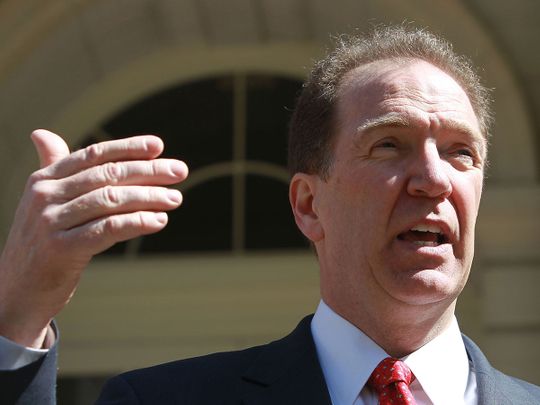
Dubai: The Gulf’s flexibility in keeping oil supplies flowing will be critical to dampening market volatility in the near future, according to the President of the World Bank.
“With the current situation in commodity markets, the fiscal bill for fuel subsidies would crowd out many other activities if left unreformed,” said David Malpass, who heads the Washington-based multilateral entity. “The case to contain these subsidies while using cash transfers to protect the poor has never been stronger. The [GCC] region can make major progress through efficiency gains in the transmission and use of energy.”
Due to the low price of solar energy generation in the GCC, Malpass believes alternative energy sources have the potential to replace fossil fuels for the GCC’s residential and industrial use. The process will require finding and planning cost-effective clean energy generation projects, improving the efficiency of distribution and boosting the financial viability through tariff reforms. “Private capital can be mobilized to optimize balance-sheets of state-owned enterprises and to support climate-smart infrastructure,” he added.
Addressing the World Government Summit on Wednesday, Malpass said that economic diversification can be a path to reduce carbon emissions for economies dependent on oil and gas. He suggested countries can activate this path through openness to trade, labour and capital mobility, investing in knowledge and enabling a strong business environment.
“GCC countries are rightfully concerned about the global community’s desire to shift away from oil,” said Malpass. “We need to look for ways to put the power sector on track for sustainable performance and improved service delivery.”
The Middle East and North Africa will soon be the epicenter of the upcoming climate action discussions with Egypt hosting COP27 and UAE COP28.












